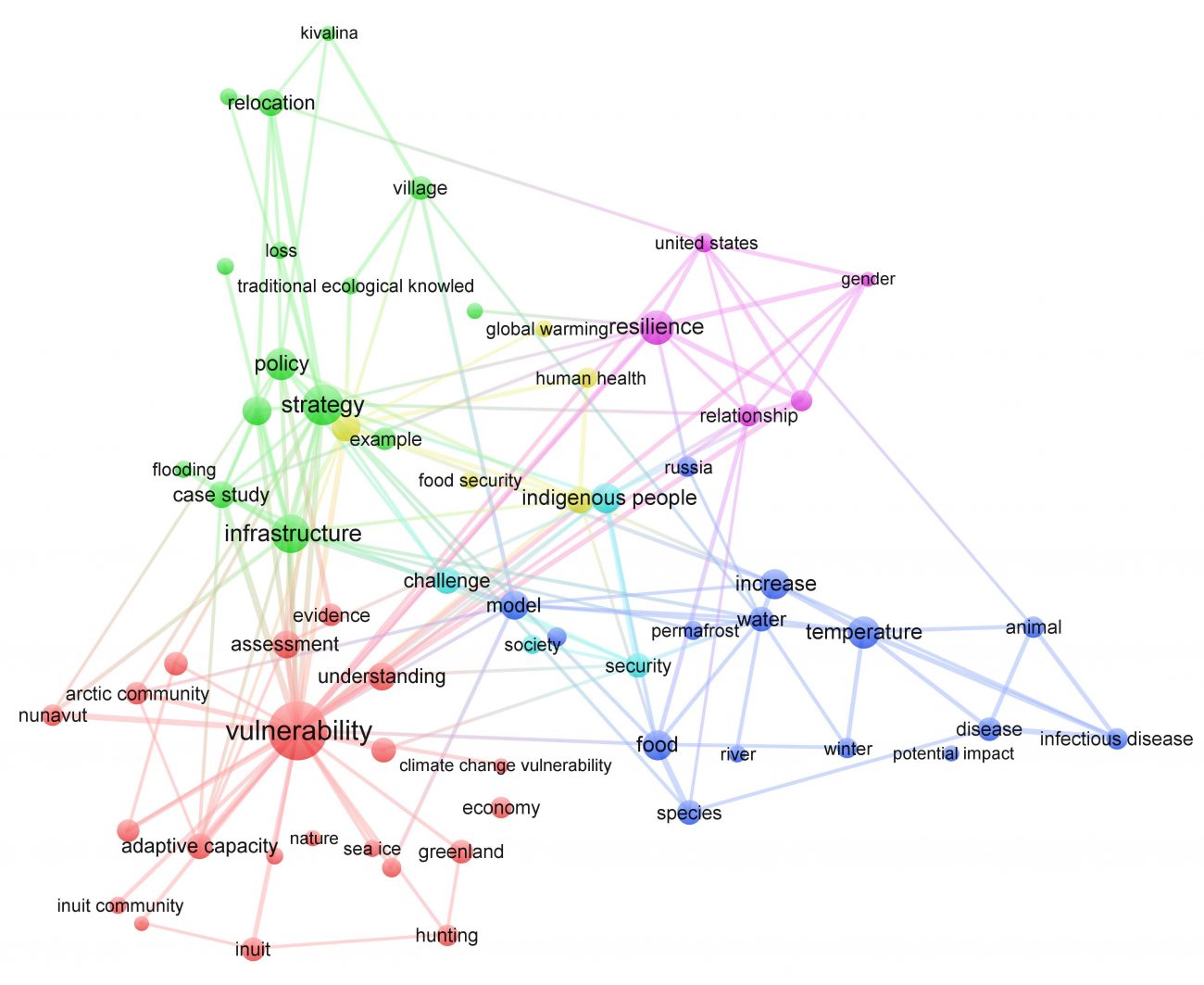Loss and damage in the Arctic under climate change
IIASA researchers have reviewed the latest studies on the impacts that climate change will have on the Arctic, from its delicate environment to its local communities. The results show that some changes will be so sweeping that they may go beyond the bounds of adaptation, and a case can be made for international support for the victims of this climate-related loss and damage.
Climate change will have severe impacts on the Arctic, both scientific evidence and traditional knowledge show, and those risks and impacts may also have global consequences. To assess exactly what those impacts might be, an IIASA researcher reviewed the latest studies on the consequences of climate change for the Arctic region and their implications for identifying risks beyond adaptation and supporting the victims of climate-related loss and damage.
Climate related risks and impacts are not distributed equally in the Arctic, the review revealed. And although some Arctic countries have high adaptive capacity, under conditions of rapid change current institutions and government mechanisms are not sufficient to deal with the multiple challenges of change, which include climate change, environmental degradation, and the pressure of new businesses coming to the Arctic.
Another key finding was that climate change increases the vulnerability of local and indigenous communities across the region. Land-based livelihoods, such as reindeer husbandry, can be affected by climate change directly because of shrub growth, which absorb heat more than snow or ice, and will exacerbate regional warming. Livelihoods can also be indirectly affected by increased economic interest in exploitation of natural resources, which can lead to land-use conflicts. Sea-level rise and coastal erosion are also forcing people to emigrate or relocate away from coastal communities. This can have negative impacts on society and culture, and raises questions about the limits to adaptation.
One important issue the review highlighted is the lack of local capacity or an international institutional framework to organize relocation. As people have to move away from their communities many feel this can no longer be classed as ‘adaptation’ and therefore should be considered loss and damage worthy of support by the international community. Relocation can also have multiple negative consequences, especially in indigenous communities who are facing loss of their traditional livelihoods and culture.
There is a need for (re-)identification of roles and responsibilities in international climate policy, especially in terms of liability and compensation mechanisms and international institutional support to define the limits of adaptation, the review concluded.
Figure: Arctic loss and damage-related studies as a “keyword mining” visualization. The ‘term map’ visualizes main topics found in the articles. The figure shows the essential keywords related to the Arctic loss and damage topic that are most frequently encountered, extracted from the article titles and abstracts. Overall 83 terms that met the threshold of appearance 10 times were selected. The size of the circles indicates frequencies of keywords. Circle colors indicate close relatedness of the terms (substance-wise). The terms marked with the same color form a cluster of related terms that can be seen as a topic. Lines express co-occurrence of the terms between the clusters either in the article title, or abstract, or both (N=164). Created by Maria Söderholm from Aalto University, Finland.
References
[1] Landauer, M & Juhola S (2017) Loss and damage in the rapidly changing Arctic. In: Mechler R, Bouwer L, Linnerooth-Bayer J, Schinko T, Surminski S (eds.). Loss and Damage from Climate Change: Concepts, Principles and Policy Options. Springer, (forthcoming).
Collaborators
- Loss & Damage Network: Deltares, Netherlands
- London School of Economics, UK
- Fondazione Eni Enrico Mattei, Italy
- Basque Centre for Climate Change, Spain
- University of Oxford, UK
- Institute for Environmental Studies, Vrije Universiteit Amsterdam, Netherlands
- University of Salzburg, Austria
- University of Wellington, New Zealand
- International Center for Climate Change and Development, Bangladesh
- Practical Action, UK
- UN University, Institute for Environment and Human Security, Germany
- Climate Analytics, Germany
- University of Graz, Austria
- Vienna University of Economics and Business, Austria
- University of Vienna, Austria
- Universität Zürich, Switzerland
- University of Helsinki, Finland
- Aalto University, Finland

